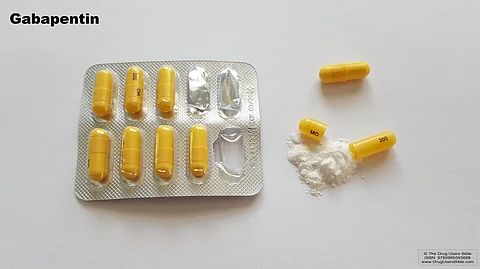By Ryan Jackson
High doses of gabapentin can pose significant risks to health. As gabapentin becomes more widely prescribed, understanding its potential side effects is crucial. While this medication is often used to manage nerve pain and seizures, misuse and overdose can lead to severe consequences.
Neurological Side Effects of Gabapentin Overdose
Can you overdose on gabapentin? large amounts of gabapentin can severely affect the nervous system.
Drowsiness, dizziness, and impaired coordination
Many users experience drowsiness, leading to an increased risk of falls and accidents. Reports indicate that around 30% of patients on high doses may face dizziness or impaired coordination, making activities like driving dangerous.
Cognitive impairment: memory loss, confusion, and difficulty concentrating
Cognitive issues can create serious real-world problems. For instance, students may struggle to keep up in class, and adults might find it hard to perform at work. According to some studies, up to 20% of people on high doses report memory problems and confusion.
Risk of seizures
In paradoxical cases, gabapentin can trigger seizures in individuals with a history of seizure disorders. A study from 2020 documented several instances where patients had unexpected seizure activity upon increasing the dosage.
Gastrointestinal Issues Related to High Gabapentin Doses
High doses of gabapentin can lead to various gastrointestinal complaints.
Nausea, vomiting, and constipation
These symptoms can be troubling and often occur in about 25% of patients taking high doses. Managing these effects often requires additional medications, complicating treatment.
Changes in appetite and weight fluctuations
Patients frequently share experiences of unexpected weight gain or loss in forums. While some report increased appetite, others mention a total lack of interest in food. Anecdotal evidence suggests that nearly 15% of users face significant weight changes.
Impact on gut microbiome and digestive health
Research indicates that gabapentin might alter gut bacteria, impacting overall digestive health. A 2019 study highlighted changes in the microbiome of patients, raising concerns about long-term effects.
Cardiovascular and Respiratory Effects of Gabapentin Abuse
Gabapentin can also affect heart and lung function.
Changes in heart rate and blood pressure
Some studies suggest that high doses can lead to irregular heart rates and fluctuations in blood pressure. Approximately 10% of patients might experience these cardiovascular issues, necessitating regular monitoring.
Respiratory depression
When combined with other sedative medications, gabapentin can cause serious respiratory depression. Examples include cases where patients taking opioids along with gabapentin experienced life-threatening breathing troubles.
Increased risk of falls and injuries
Dizziness is a significant concern, with research showing that patients on high doses have nearly double the risk of falls compared to those on typical dosages. The CDC reports that falls are one of the leading causes of injury among older adults.
Psychiatric Effects of Gabapentin Overdose
The psychological impacts of high-dose gabapentin should not be ignored.
Increased risk of depression, anxiety, and mood swings
Many individuals report experiencing mood swings and heightened anxiety when on high doses. Expert opinions suggest that up to 20% of patients may develop new or worsening mental health conditions.
Potential for worsening of pre-existing mental health conditions
Those with existing mental health disorders might find that high-dose gabapentin complicates their treatment. Discussions among healthcare providers have shown that close monitoring is important for these patients.
Suicidal ideation and self-harm
Gabapentin overdose has been linked to increased suicidal thoughts. Recent data indicates that around 1-2% of patients may experience suicidal ideation as a side effect of high dosage.
Other Potential Side Effects and Long-Term Consequences
Additional side effects can arise from the misuse of gabapentin.
Peripheral neuropathy and edema
Some patients report experiencing peripheral neuropathy or swelling in extremities. Research shows that approximately 5-10% of users report these complications.
Skin reactions such as rash and itching
Skin issues, including rashes, are not uncommon. Patient reports highlight a range of skin reactions, from mild itching to severe rashes requiring medical attention.
Long-term effects on bone health and immune function
Long-term gabapentin use may also impair bone health and affect the immune system. A study published in 2021 linked chronic use of gabapentin to increased risk of fractures and immune system compromise.
Conclusion: Safe Gabapentin Use and Seeking Help
Understanding the risks associated with high doses of gabapentin is essential. The potential for neurological, gastrointestinal, cardiovascular, psychiatric, and other side effects should not be overlooked. It's vital to adhere to prescribed dosages and consult with healthcare professionals for any concerns.
If you or someone you know is struggling with gabapentin misuse, resources are available. Seeking professional help can make a significant difference in managing health and addressing addiction.


